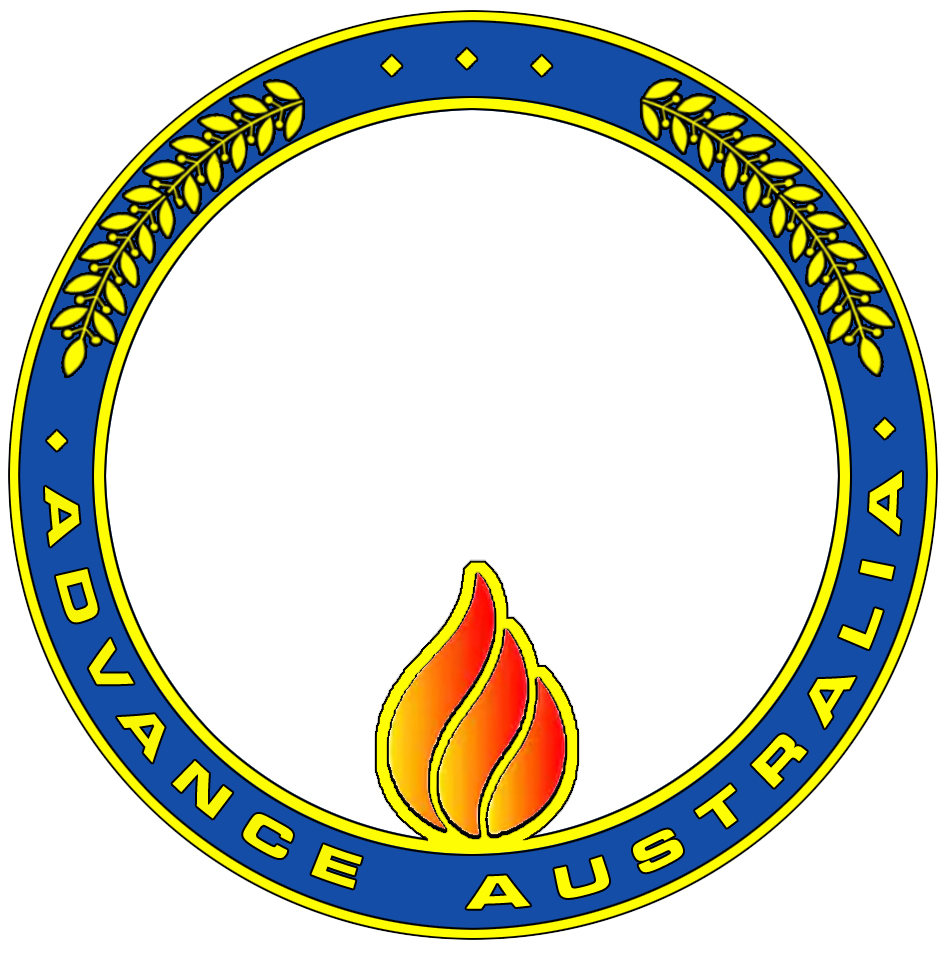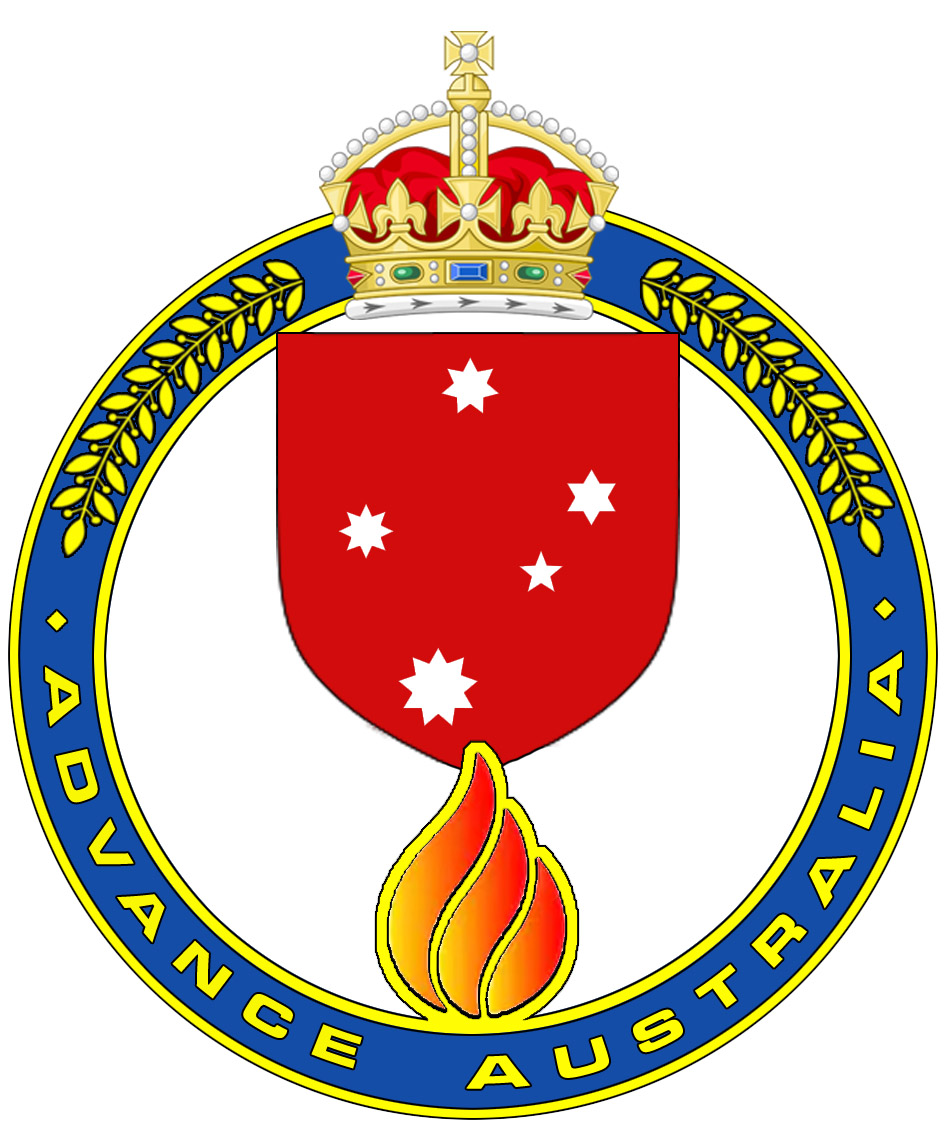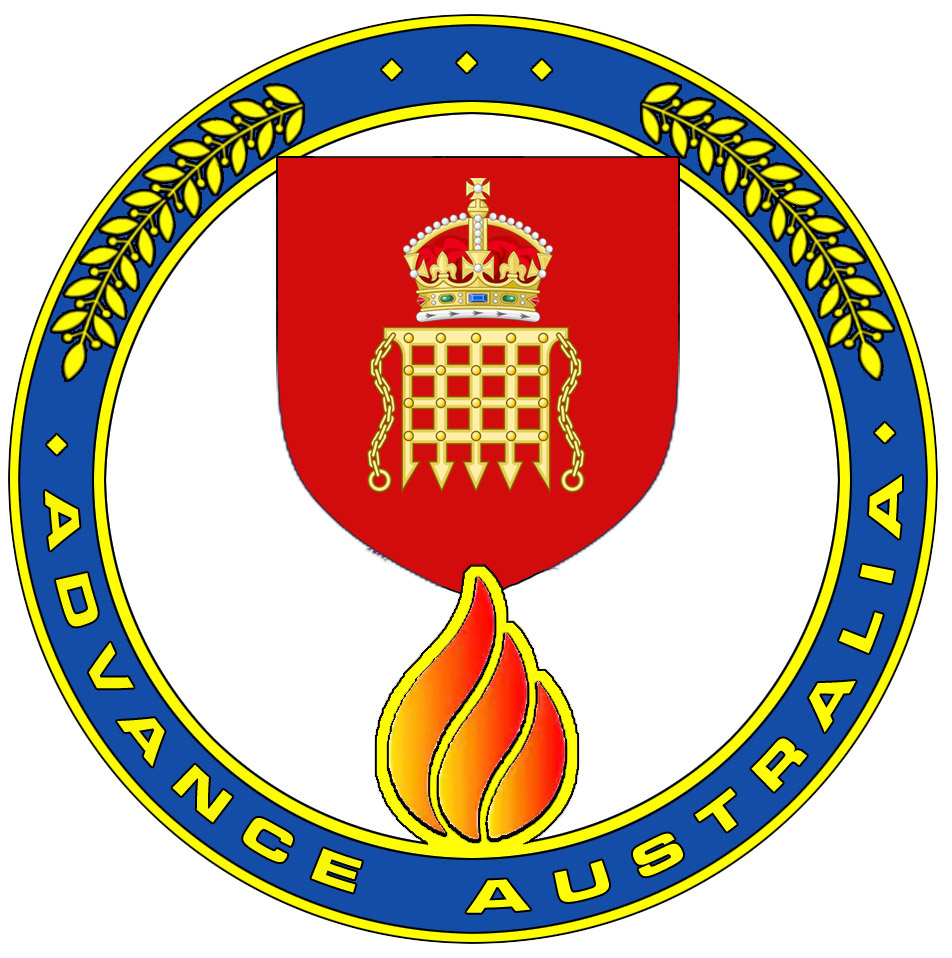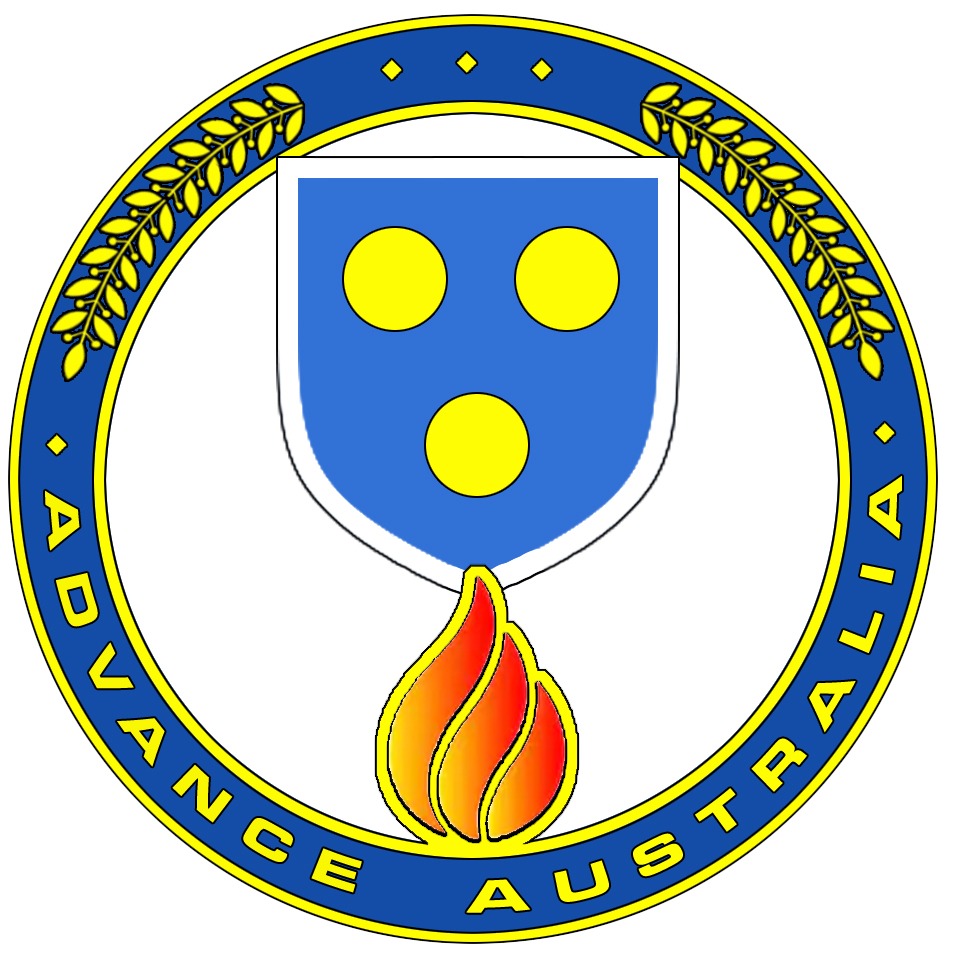The Kings Diction

Most Noble Order of the Desert Flame
Link: Order of the Desert Flame

Australian Imperial Crown
Link: Australian Imperial Crown


Link: Order of the Desert Flame

Link: Australian Imperial Crown

We continue through our production of facts. In fact 7 we discovered that a King may only rule from one throne which also includes the extra-territorial dominions that are declared in Royal Title.
After the death of Queen Victoria on 22nd January 1901 the heir to the Realm became Edward VII. The Commonwealth of Australia had come into being from its Constitution on 1st January 1901 we will see that the 1st Parliament of the Commonwealth sat under Edward VII as we go through more facts.
Edward VII defined Royal Titles in August 1901 which gave recognition to the Dominions beyond the seas. And as we have already mentioned at Clause 8 of the Constitution Act we can see that the Commonwealth of Australia is a self governing colony of the Realm. We will discuss the changes to this as we go through more facts.
The Royal Titles Act 1901 can be demonstrated to be with advice and consent of the Spiritual, Temporal and Commons and by authority of the same. This can now be demonstrated to be a line of authority through oath of office through an allegiance and coronation oath to the realm specifically.
Title defines dominions beyond the seas and links the titles 'appertaining' to the Imperial Crown of the United Kingdom. England had gone through the War of the Roses, and the Union of Crowns to become united with Scotland and defined as Great Britain. in 1542 the Crown Proclaimed to be King of Ireland, this was carried through into Queen Victoria proclamations making the United Kingdom of Great Britain and Ireland.
10. ROYAL TITLES ACT 1901 [17th August, 1901]
An Act to enable His most gracious Majesty to make an Addition to the Royal Style and Titles in recognition of His Majesty's dominions beyond the seas.
1 Edw. 7. c. 15 [17th August, 1901.]
repealed, SLR 1958
BE it enacted by the King's most Excellent Majesty, by and with the advice and consent of the Lords Spiritual and Temporal, and Commons, in this present Parliament assembled, and by the authority of the same, as follows:
1. It shall be lawful for His most gracious Majesty, with a view to the recognition of His Majesty's dominions beyond the seas, by His Royal Proclamation under the great seal of the United Kingdom issued within six months after the passing of this Act, to make such addition to the style and titles at present appertaining to the Imperial Crown of the United Kingdom and its dependencies as to His Majesty may seem fit.
2. This Act may be cited as the Royal Titles Act, 1901.
a) The Crown of the United Kingdom of Great Britain and Ireland is an Imperial Crown.
b) Royal Titles 1901 comes under Great Seal of the United Kingdom of Great Britain and Ireland
c) The Great Seal of the United Kingdom of Great Britain and Ireland has dependencies.
d) It is lawful for the King Edward VII to make addition to the Style and Title up to six months after the passing of the Act.
Along with Clause 8 defining the Commonwealth of Australia to be a colony and dominion beyond the seas, Edward VII had shown recognition of the Commonwealth of Australia in whole. Being a self-governing colony the Commonwealth of Australia was issued with Great Seal of the Commonwealth of Australia through Letters Patent 1900 although the Royal Title was sealed with the Great Seal of the United Kingdom.
After World War One the United Kingdom of Great Britain and Ireland went through the biggest change it had seen in hundreds of years at which Imperial Conferences would follow deciding how to deal with the now fracturing Empire.
It had been the protocol for the Parliament of the Spiritual, Temporal and Commons to define the requested Royal Styles although this time Parliamentary Titles were introduced. The Parliament had requested the title to be the United Kingdom of Great Britain and Northern Ireland after the Treaty of Eire had seen an Irish Republic formed and the Irish Free State. We will see through King George V Proclamation that Royal Title became different to the requested Parliamentary Title.
11. ROYAL STYLES AND PARLIAMENTARY TITLES 1927 [12th April 1927]
An Act to provide for the alteration of the Royal Style and Titles and of the Style of Parliament and for purposes incidental thereto.
17 Geo. 5. c. 4 [12th April 1927.]
BE it enacted by the King's most Excellent Majesty, by and with the advice and consent of the Lords Spiritual and Temporal, and Commons, in this present Parliament assembled, and by the authority of the same, as follows :—
1. It shall be lawful for His Most Gracious Majesty, by His Royal Proclamation under the Great Seal of the Realm, issued within six months after the passing of this Act, to make such alteration in the style and titles at present appertaining to the Crown as to His Majesty may seem fit.
2.-(1) Parliament shall hereafter be known as and styled the Parliament of the United Kingdom of Great Britain and Northern Ireland; and accordingly, the present Parliament shall be known as the Thirty-fourth Parliament of the United Kingdom of Great Britain and Northern Ireland, instead of the Thirty-fourth Parliament of the United Kingdom of Great Britain and Ireland.
(2) In every Act passed and public document issued after the passing of this Act the expression "United Kingdom" shall, unless the context otherwise requires, mean Great Britain and Northern Ireland.
3. This Act may be cited as the Royal and Parliamentary Titles Act, 1927.
a) King George V was given six (6) months to make alteration to Styles and Titles.
b) Parliamentary Title is United Kingdom of Great Britain and Northern Ireland.
What is to be noted here is that the Royal Styles and Parliamentary Titles provides for the King is offered by the Parliament six months to alter the Styles and Titles after the passing of the Act as the King may see fit.
At point 2 the Parliament defines itself the United Kingdom of Great Britain and Northern Ireland without defining Royal Title of the Realm itself and states the United Kingdom shall unless context otherwise requires to be Great Britain and Northern Ireland.
2 Kings 23:17 Authorized (King James) Version (AKJV)
17 Then he said, What title is that that I see? And the men of the city told him, It is the sepulchre of the man of God, which came from Judah, and proclaimed these things that thou hast done against the altar of Beth-el.
Biblically we can define the title that is seen, but here we have a Parliament defining something that is not carried forward in Proclamation relevant to the pillar of the realm itself.
King George V had seen to issuing a proclomation of title almost exactly a month later. Well within the six month period as defined in the request by Royal Styles and Parliamentary Titles Act 1927. We can also see a difference from the 1901 Royal Titles Act that we have Parliamentary Title instead and only Royal Style.
The King defines specifically in proclamation the altering of Style and Titles appertaining to the Crown. It can also be demonstrated that the king recognises the request and time frame of six months in which to alter the styles and titles relative to the Imperial Crown Realm already defined in facts laid out.
12. PROCLOMATION [13th May 1927 ]
By His Majesty the King altering the Style and Titles appertaining to the Crown.
London, May 13, 1927.
(British and Foreign State Papers, vol. 126, p. 44; citing the "London Gazette," May 13, 1927.)
George R.I.
WHEREAS by "The Royal and Parliamentary Titles Act, 1927," it is enacted that it shall be lawful for us by our Royal Proclamation under the Great Seal of the Realm issued within 6 months after the passing of the said Act to make such alteration in the style and titles at present appertaining to the Crown as to us may seem fit; And whereas our present style and titles are, in the Latin tongue, "Georgius, V Dei Gratia Britanniarum et terrarum transmarinarum quae in ditione sunt Britannica Rex, Fidei Defensor, Indiae Imperator," and in the English tongue. "George V by the Grace of God of the United Kingdom of Great Britain and Ireland and of the British Dominions beyond the Seas King, Defender of the Faith, Emperor of India"; And whereas we have received a recommendation from the representatives of our Governments, in conference assembled that our style and titles should he altered as in manner hereinafter appearing: We have thought fit, and we do hereby appoint and declare, by and with the advice of our Privy Council, that: henceforth so far as conveniently may be, on all occasions and in all instruments wherein our style and titles are used, the following alteration shall be made in the style and titles at present appertaining to the Crown, that is to say, in the Latin tongue, for the word - Britanniarum - there shall be substituted the words - Magnae Britanniae, Hiberniae," and in the English tongue, for the words "the United Kingdom of Great Britain and Ireland and of" the words "Great Britain, Ireland and".
Given at our Court at Buckingham Palace, this 13th day of May, in the year of our Lord 1927, and in the 18th year of our reign.
a) Style and Title of the Imperial Crown is altered from ‘United Kingdom of Great Britain and Ireland’ to ‘Great Britain’.
b) The words ‘United Kingdom’ are removed from Style and Title.
c) George V gave Title of “George V by the Grace of God, of Great Britain, Ireland and of the British Dominions beyond the Seas, Defender of the Faith, Emperor of India";
d) Separation by comma became Great Britain, Ireland and of the British Dominions beyond the Seas.
The king defines very specifically the change and through that the separation of the empires dominions. We can see that the title no longer states 'United Kingdom" and there is a separation of Great Britain from Ireland altogether.
It has to be noted that the King has defined to replace the words "the United Kingdom of Great Britain and Ireland and of" with the words "Great Britain, Ireland and". This clearly separates Great Britain from Ireland as a unified Kingdom and leaves Great Britain to be defined through the Union of Crowns meaning England and Scotland only.
What is disturbing here is that the King is then ignored by the Parliament of Great Britain which continues to call itself the United Kingdom when at Royal Law it technically no longer exists.
The only way this could have occurred is if the Parliament itself had gained powers over and above the king as administrators rather than lawful governance.
Isaiah 9:6 Authorized (King James) Version (AKJV)
6 For unto us a child is born, unto us a son is given:
and the government shall be upon his shoulder:
and his name shall be called Wonderful, Counsellor,
The mighty God,
The everlasting Father,
The Prince of Peace.
We start to see that Titles are to be proclaimed through the right of God at which the king holds by coronation oath the duty to uphold. We can also see that government falls on the shoulder of the realm that is founded in God.
Why then is the Parliament ignoring the foundations that are in God and continuing the use of Parliamentary Title outside of the changes proclaimed in May 1927 by the Supreme Head of the Realm himself.

United Kingdom of Australia
Copyright 2023 House of Spiers